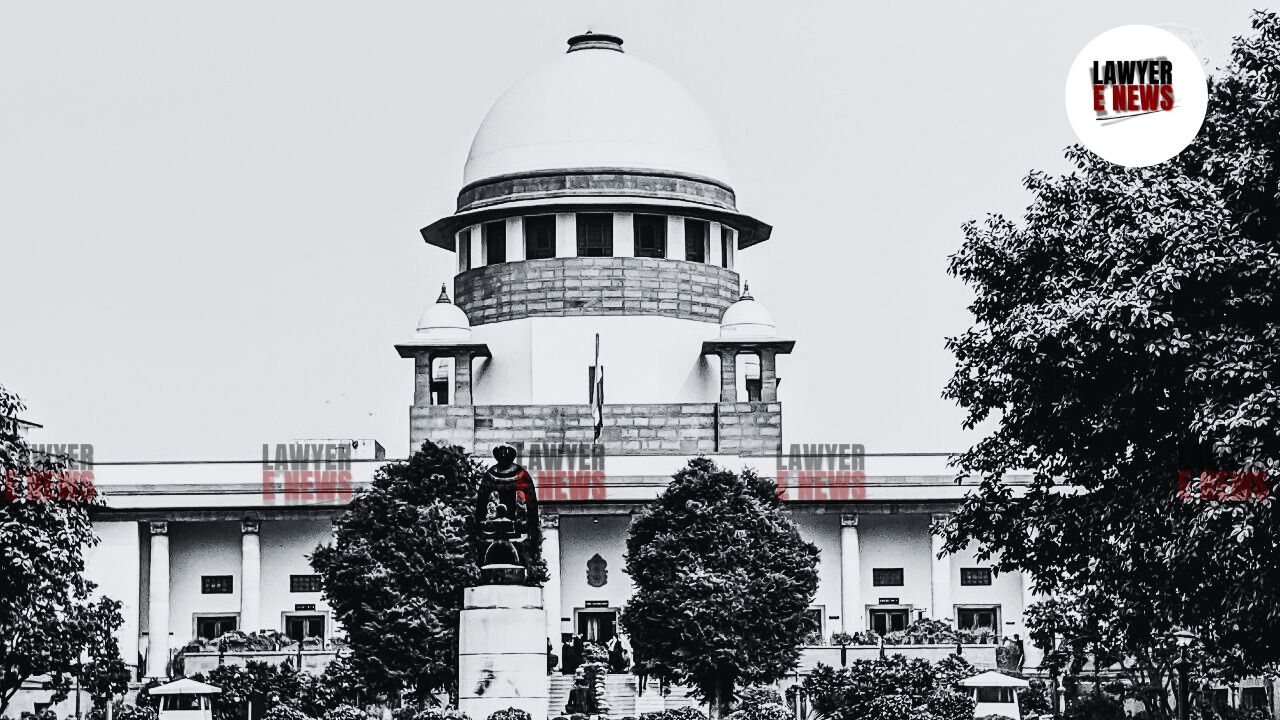-
by Admin
16 February 2026 1:47 PM



Restores Complaint Against Doctors Over Alleged Medical Negligence Causing Death “The Judicial Magistrate lacked jurisdiction to dismiss the complaint during the subsistence of the High Court’s stay order and the pandemic restrictions”, Supreme Court
On 17th March 2025, the Supreme Court of India delivered a significant judgment in Ranjit Sarkar vs. Ravi Ganesh Bharadwaj & Others, dealing with the interpretation of Section 256 of the Code of Criminal Procedure, 1973. The case revolved around the dismissal of a complaint due to the complainant’s absence during the COVID-19 pandemic and whether such dismissal automatically results in acquittal of the accused. The Court set aside the High Court’s order which had upheld the dismissal, holding that the Judicial Magistrate’s order suffered from serious legal errors and overlooked crucial facts, including prevailing pandemic-related restrictions.
Background of the Case
The appellant, Ranjit Sarkar, father of the deceased, lodged a complaint under Section
304A of the Indian Penal Code alleging that his 36-year-old son, a Ph.D. holder, died due to “criminal medical negligence” after sustaining a traumatic fall. The Judicial Magistrate took cognizance and issued process against the accused, who later approached the High Court under Section 482 CrPC, resulting in a stay of proceedings.
However, during the subsistence of this stay, the Judicial Magistrate, on 16th April 2021, dismissed the complaint for default when the complainant failed to appear due to COVID19-related health issues. The appellant, a septuagenarian, was suffering from COVID-19 at the relevant time.
The Sessions Judge, In revision, set aside the Magistrate’s order and restored the complaint. However, the High Court again interfered on 15th July 2024, holding that the Sessions Judge could not sit in appeal over an earlier High Court order that had interpreted Section 256 CrPC in favor of the accused, resulting in the closure of the complaint.
Legal Issues and Court’s Observations
The Supreme Court identified multiple legal errors committed by the High Court and the Magistrate:
The Court categorically held that “COVID restrictions being in place and in terms of the SoP framed by the High Court, the Judicial Magistrate could not have dismissed the complaint for default on 16th April, 2021 without recording a satisfaction that either the appellant was deliberately avoiding participation in the proceedings or that his recalcitrance was such, which left the Judicial Magistrate with no other option but to dismiss the complaint for default”.
The Court further highlighted that “the proceedings before the Judicial Magistrate having been stayed by the High Court by interim orders passed from time to time, the Judicial Magistrate lacked the jurisdiction to pass any order on the complaint case till such time the stay was lifted.”
On the erroneous approach adopted by the High Court, the Bench remarked: “The impugned order of the learned Judge reveals a narrow focus stemming from a one-track mind.”
Addressing the interpretation of Section 256 CrPC, the Court made an important clarification: “Had COVID restrictions not been in place and in otherwise normal circumstances, if the appellant remained absent on the date appointed for appearance of the respondents, without showing sufficient cause, the Judicial Magistrate in terms of Section 256, Cr. PC would have been justified in recording an order of acquittal of the respondents had they been present unless, for some reason, he intended to adjourn the hearing to some other day.”
However, the Court noted that the date in question (16th April 2021) was not the date appointed for the appearance of the accused but was fixed for the complainant to show cause. Therefore, the question of acquittal under Section 256 did not arise.
The Court emphasized, “the jurisdictional facts for recording an acquittal under Section 256, Cr. PC were not satisfied in the present case, firstly, because it was not the appointed day for appearance of the respondents and secondly, they were also not present.”
The Supreme Court was also critical of the High Court’s approach towards the Sessions Judge’s revisional jurisdiction. The Bench observed, “It was absolutely incorrect on the part of the learned Judge to hold that the Sessions Judge was sitting in appeal over the order of the High Court.”
The Court clarified that the Sessions Judge was well within his jurisdiction to revise the Magistrate’s dismissal order. It observed that “the appellant did have multiple remedies available in law to pursue for laying a challenge to the order dated 16th April, 2021 and which, in fact, he did pursue as the correct course of action; and, indeed, succeeded in restoration of his complaint. Interference, therefore, was not called for.”
Referring to the earlier observation of the High Court which construed every absence of complainant under Section 256 as leading to automatic acquittal, the Court bluntly said: “Such observation was patently incorrect since bare reading of Section 256, Cr. PC, having regard to the attending facts and circumstances, did not entail an acquittal for the respondents.”
Ultimately, the Court restored the complaint and also revived CRR No. 2327 of 2018, directing the High Court to decide the pending criminal revision afresh within six months.
The judgment concluded: “Considering the fact that CRR No. 2327 of 2018 had been disposed of by the order dated 9th September, 2021 in view of dismissal of the complaint case for default, we also set aside the order dated 9th September, 2021 of disposal of CRR No. 2327 of 2018 in exercise of power conferred by Article 142 of the Constitution of India and revive the same by restoring it on the file of the High Court.”
The Supreme Court’s judgment is a reaffirmation that procedural law must be applied keeping in mind the factual and exceptional circumstances like public health emergencies and judicial propriety. It also settles that not every absence of a complainant mechanically results in acquittal under Section 256 CrPC and that lower courts must carefully record their satisfaction before invoking dismissal or acquittal powers.
Date of Decision: 17th March, 2025
